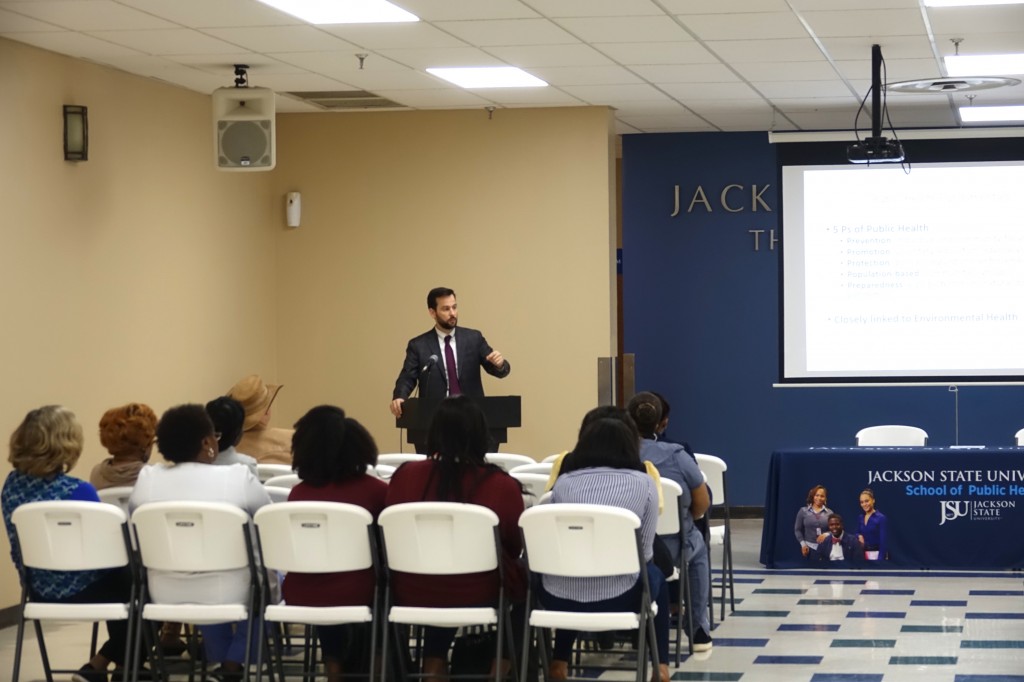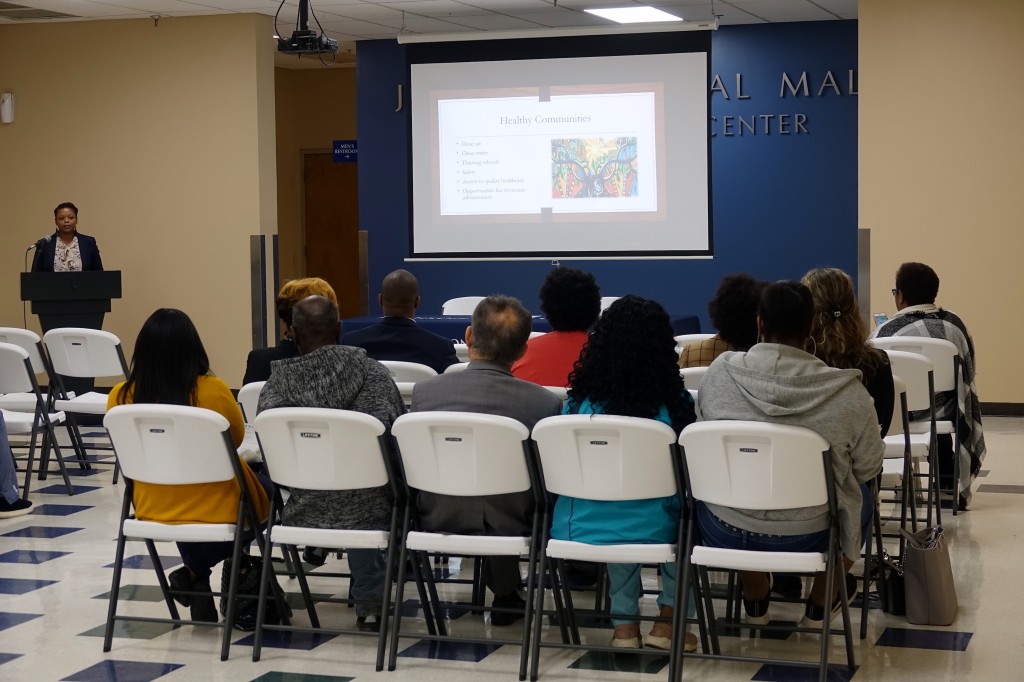Mississippi’s only School of Public Health presented a forum about its profession and addressed disease prevention during a recent presentation titled “Public Health 101: Everyone, Everywhere, Everyday.”

Dr. David Buys, president of the Mississippi Public Health Association (MPHA), was among the presenters.
Buys described medicine as “largely individually focused.” He said, “It also is diagnosis-oriented, treatment-oriented and intervention- oriented through specifically medical care.” On top of that, he said it’s “private in a lot of ways.”
Despite its history, “what’s interesting now is that health care providers are becoming increasingly interested in public health and intervention,” Buys said. “They’re now promoting green prescriptions – getting people to walk, buy fruits and vegetables.”
He added that “physicians have such influence over the patients they treat. What’s off-putting as a public health professional is for folks in the medical arena to pretend like these are new ideas. They’re just coming online with evidence we’ve had a long time.”
Buys emphasized that public health is important when dealing with natural disasters such as tornadoes and Hurricane Katrina. As well, he said the public is at risk due to mosquitoes and the Zika outbreak. Broken water mains also pose a problem and require that water be tested after repairs before it can be consumed. The MPHA leader also lectured on other Public Health 101 topics:
The goal of public health
- Prevent epidemics and the spread of disease
- Protect against environmental hazards
- Designed to prevent injuries
- Promote and encourage healthy behaviors
- Respond to disasters and assists communities in recovery efforts
- Make sure of the quality and accessibility of health care services
Five Ps of public health
- Prevention (individual and community-focused)
- Promotion (voluntary, education, advocacy)
- Protection (policies/regulations/enforcement)
- Population-based (communities, groups)
- Preparedness (e.g., bioterrorism, natural disasters, pandemics)
The levels of disease prevention and examples
- Primary prevention: seat belt use, anti-smoking campaign
- Secondary prevention: early detection of diseases and health care problems to improve treatment and recovery
- Tertiary prevention: improving the quality of life by reducing the symptoms of an ongoing disease

Buys said emerging threats in the 21stcentury include climate change that isn’t addressed much in Mississippi. He said, “It seems to be a cursed word. It’s clearly affecting us. We don’t have to get into whether it’s manmade or natural. We acknowledge that we don’t have climate data beyond a couple hundred years ago. Still, the fact remains that we have climate change, and we must do what we kind to mitigate it.”
Dr. Nakietra Burse, president of the Delta Chapter of the Society for Public Health Education (SOPHE), said public health promotes and protects people and communities where they live, learn, work and play.
She also outlined key points about the importance of her profession for:
Sustaining healthy communities
- Clean air
- Clean water
- Thriving schools
- Safety
- Access to quality health care
- Opportunities for economic advancement
Preventing violence
- Police brutality
- School violence
- Domestic violence
- Bullying
- Sexual assault
Advocating for rural health
- Quality health care
- More health care providers (major shortage in rural areas)
- Environmental justice
- Healthy food
Using technology
- Mapping and tracking disease outbreaks
- Telehealth
- Online learning
- Social media marketing and health communication
Addressing climate change
- Natural disasters
- Food security, water and air quality
Understanding common threats to vulnerable populations
- Poor
- Minority
- Disadvantaged
In addition, Burse said efforts must be made toward justice and equal opportunity through the following methods:
Research: data, fact-finding
- Development and implementation: creating and testing new ideas/strategies
- Policy change: advocating for and implementing policies for change






